What “Black Resistance” Means to Me Members of the BU community reflect on the theme of this year’s Black History Month
Image by Gemma Acheampong
Black History Month
What “Black Resistance” Means to Me
Members of the BU community reflect on the theme of this year’s Black History Month
Since 1976, the United States has designated February as Black History Month to celebrate and honor the achievements of Black Americans. The theme of this year’s observance is “Black Resistance.”
The Association for the Study of African American Life and History (ASALH), which oversees and coordinates the annual observance, notes on its website that “African Americans have resisted historic and ongoing oppression, in all forms, especially the racial terrorism of lynching, racial pogroms, and police killings since our arrival upon these shores.” In explaining why it chose “Black Resistance” as the 2023 theme, ASALH writes, “as societal and political forces escalate to limit the access to and exercise of the ballot, eliminate the teaching of Black history, and work to push us back into the 1890s, we can only rely on our capacity to resist.”
Resistance can take many forms and it means different things to different people. BU Today reached out to some members of the BU community with this question: “What does Black resistance mean to you?” Their thoughts covered pain and hope, joy and violence, faith and compassion. As the College of Arts & Sciences’ Vincent Stephens writes in his response: “Resistance remains a vital trope of Black life.”
“To resist is to work toward a collective rebuilding—the articulation of a new vision”Harvey Young , dean of the College of Fine Arts
It is a sad reality that something as simple as breathing—inhaling and exhaling everyday air—can qualify as “resistance.” And yet, we have seen time and time again people whose complexion mirrors my own pleading for breath. I can’t breathe .
Resistance is breath. And presence. There’s a fantasy of the antiracist swashbuckler who responds to a neo-Star Wars -esque plea (Help us! You’re our only hope ) by destroying systems and structures in a manner that would make film director Michael Bay envious. In truth, the work of resistance and, indeed, antiracism can be surprisingly mundane. To “resist” is to actively create space—room to breathe and opportunities to lead—for those who have been denied a place and whose very being has been (and continues to be) challenged.
“Resistance,” a loaded word, may be antagonizing to some who view it as a threat to their comfort. Too many people are content to witness Black people not breathing, not being able to learn about their ancestors’ achievements, not being able to live in the house next door, not having a seat in the boardroom.
To resist is to work toward a collective rebuilding—the articulation of a new vision—not delimited by the blindered imaginings of 18th-century men who could not conceive of women and/or nonwhite folks of color having basic citizenship rights.
Resistance can take many forms. It can be leading a movement. It can also be waking up, walking out the front door, and refusing to allow others to deny your possibility.
Close
“Being a Black student at a predominantly white institution is a form of Black resistance”Aasiya Norris (CAS’23)
Black resistance is intrinsic to Black existence in a country that was built on the backs of Black people. Throughout US history, Black people have been murdered in cold blood simply because we are audacious enough to exist. We study at a university where it is rare to see people who look like us; who share our experience. Being a Black student at a predominately white institution is a form of Black resistance because we show up, take space, and demand equity for ourselves, and those students to follow. Black resistance is necessary for Black survival so that we live on to tell our story, celebrate our history, and demand that systemic barriers intended to hinder our advancement are torn down. Black resistance is activism. From slave rebellions to the Civil Rights Movement to the Movement for Black Lives, we are not satisfied with a seat at the table of the oppressor. Rather, our resistance lives in abolishing the table of oppression and building advanced and inclusive systems. Black resistance is our existence. Our fight is a transgenerational flame that will never be extinguished.
Close
“Black resistance is not just something we do, it is who we are”Deborah Williams (LAW’24), copresident, BU Law Women of Color Collaborative
There is a common misconception surrounding the phrase, “a voice for the voiceless.” We must understand that people—my people, Black people—are not voiceless. Black people aren’t being listened to; they’re being talked over. When the injustices we face are so blatant and a community is crying out, the appropriate response is to grab a microphone and amplify them. However, Black resistance is done by our people, for our people, with or without the amplification or support from elsewhere. Because our suffering is so great, so must our response be. And so it is. The surge in awareness and support of the Black Lives Matter movement during COVID should not overshadow the previous decades—no, centuries—of moving and shaking of the bedrocks of this country. Not only is the history of our struggle vast, but it is largely unknown by the majority. But ignorance of that history does not mean it does not exist. Even if you aren’t able to name the Moseses of our community, just looking at our origin story reveals this: the bondage of my people automatically ignited the fight we find ourselves in today. This is what makes resistance hereditary in the Black community. It is etched in our genetic code, and runs throughout the bloodlines of each generation. We live up to our namesakes with each call to action, rally to protest, and act of civil disobedience. Black resistance is not just something we do, it is who we are.
Close
“The conspiracy of forgetting must be exposed, resisted, and defeated”Phillipe Copeland , clinical assistant professor, School of Social Work, and assistant director of narrative, BU Center for Antiracist Research
We are living and dying through a period of racist backlash intended to maintain the status of wealthy whites. An international white nationalist movement, racial terrorism, hate crimes, police and vigilante violence, and racist policymaking are just a few examples. Such authoritarian trends put democracy and freedom at risk across the globe. The stakes are high and the hour is late. We are literally in the fight of our lives.
Part of the racist reaction we are living and dying through involves a conspiracy of forgetting. This conspiracy requires banning any learning that does not serve conservative interests. Examples include so-called “critical race theory” bans and book bans. Most recently, Florida’s governor has banned AP African American studies.
Under these deepening shadows, I am reminded of what Frederick Douglass wrote in 1888:
“Well, the nation may forget; it may shut its eyes to the past and frown upon any who may do otherwise, but the colored people of this country are bound to keep fresh a memory of the past till justice be done in the present.”
The conspiracy of forgetting must be exposed, resisted, and defeated. If democracy and freedom are to exist in practice and not just on paper, we must “keep fresh a memory of the past till justice be done in the present.” We must dare to remember.
Close
“Resistance remains a vital trope of Black life”Vincent Stephens , associate dean for diversity and inclusion, College of Arts & Sciences
Black resistance is a conscious effort to engage with the history of Black people in the Americas, and beyond, critically. Equal access to nuanced education is essential, as it offers us unique opportunities to develop tools to resist amnesia about structural racism—especially as state legislatures are censoring unflattering aspects of US history in an attempt to limit the consciousness of students. While the “reckonings” associated with 2020 undoubtedly galvanized the country and the world, the vulnerabilities exposed by the killings of Ahmaud Arbery, George Floyd, and Breonna Taylor and the quality of life inequities amplified by the COVID-19 pandemic are not new. Historians, economists, social scientists, public health professionals, and other scholars have continually documented patterns and impacts of overt racialized violence toward Black people and noted the long-term impacts of subtler forms of inequality, such as redlining. MLK Jr. Day and Black History Month are important, but often serve as shortcuts to continuous engagement with the complex history of Black people. These histories are irreducible to simple narratives of victimhood or triumph; rather we must seek out the resources to situate Black lives in larger sociohistorical contexts to understand why resistance remains a vital trope of Black life.
Close
“The focus on Black resistance centers my attention on the successes and triumphs of Black people against oppression”Elaine O. Nsoesie , associate professor of global health, School of Public Health, and faculty lead, Racial Data Tracker, Center for Antiracist Research
My colleague and I had spent about 45 minutes designing a study on racial inequity in South Africa and the United States, when suddenly we both fell silent. We stared at each other, the weight of the subject pushing down on our shoulders. We had made a list of datasets with known racial inequities—education, health, hospital access, location of waste disposal sites, homeownership, etc.
“How do you do it?” she finally asked. “How do you look at these data every day? It’s not just data—you see yourself in it.”
As a data scientist at the Center for Antiracist Research , I work with others to collect, analyze, and share publicly available racial data that shows the pervasiveness of structural racism. We study and question the practices and policies that create racial inequity, rather than accepting it as normal. We are following the examples of prominent Black researchers and activists like Ida B. Wells and W.E.B. Du Bois, who used similar tools—research, data, visualizations, essays—in their fight against racism. Our work is resistance.
The focus on Black resistance centers my attention on the successes and triumphs of Black people against oppression, which gives me hope against our present struggles and faith that we can achieve racial equity.
Close
“Black resistance depends on Black history”Darien Pollock , assistant professor of philosophy, CAS
Unlike most university research programs, Black studies is anchored in protest movements. Arguably the first Black studies course designed in the US, for example, was a result of student-led campus protests at San Francisco State College. In many ways, Black studies is a symbolic expression of the very nature of Black resistance.
Every year, we dedicate the month of February to celebrating the countless number of contributions that Black people have made to American progress. Founded by prominent Black intellectual Carter G. Woodson, this monthlong appreciation of Black people and our role in world history was first called “Negro History Week.”
Like me, Woodson was a son of the South, a descendant of chattel slaves. As a committed historian, he recognized the importance of educating the Black masses about the richness of Black culture. With the recent backlash toward educators that incorporate Black studies (or “African American studies”) into public university and high school curriculums (especially in my home state of Florida), one might be inclined to raise the following question: Could Black History Month exist without Black studies?
This is not only a historical question but also a philosophical one. In my view, Black studies, or as scholar Hortense Spillers prefers to call it, Black study , is the precondition that makes Black History Month possible .
For me, Black History Month provides an opportunity for the American public to honor the ideal that is presupposed by Black studies. It motivates Black and non-Black people to engage in the often-uncomfortable work of excavating the “hidden scripts” of American life—the various accomplishments, innovations, and lived experiences that are constitutive of Black culture.
Ultimately, Black resistance depends on Black history. And given that our history is only as accurate as the sources we mine, Black studies is essential to Black resistance.
Close
“Withstanding oppression while maintaining an outlook of hope, remaining perseverant, and striving for a better world…that’s Black resistance”Christine Slaughter , associate professor of political science, CAS
Black resistance is the foundation of American democracy. The march towards racial justice moved forward only when African Americans collectively challenged the United States to live up to her ideals of equality. It is everyday and ordinary Black people organizing against white violence and racial inequality. I think about Black resistance movements across time and space—such as the Atlanta washerwomen strike, the Mississippi Freedom Democratic Party, the Black Power movement, and Black Panther Party for Self-Defense—all working to provide resources for the Black community when local and federal governments failed to do so. The examples are plentiful. I think about my hometown, Petersburg, Va., a small but mighty city, where the vestiges of enslavement, Jim Crow segregation, deindustrialization, and incarceration have meaningfully shaped my upbringing and footprint. Withstanding oppression while maintaining an outlook of hope, remaining perseverant, and striving for a better world, to me, that’s Black resistance and Black resilience in the face of adversity. The theme of Black resistance for Black History Month in 2023 is potent, given the concerted attempts to silence Black scholars and limit the instruction of Black resistance in K-12 classrooms across the United States.
Close
“Black resistance requires both knowing and sharing Black stories”Tomeka Frieson (SPH’23)
When I think about the times when I’ve felt most “alive” in my Blackness, they’ve been when I’m with Black people telling Black stories. There’s something powerful about being in community and learning more about myself and others—about the ways our Black histories intertwine and diverge. Therefore, to me, Black resistance requires both knowing and sharing Black stories.
Knowing Black stories is not as easy as it sounds. Relatives may live far away from each other, family members may pass away, and history books may diminish Black achievements or omit them altogether. And, yet, when we gather with friends, family members, and mentors, and write down or record the stories they share with us, we are actively building more resistant futures. More than just in-depth histories of nationally recognized figures, we must appreciate and record our own genealogies and the experiences of everyday, present-day Black life that bring us joy and keep us going.
Nevertheless, just knowing Black stories will only do so much if we’re not able to share those Black stories with others. In sharing Black stories—at family reunions, during meals, or even by sending voice memos of random childhood memories—we are equipping current and future generations with key tools of resistance that tell them more about who they are and where they come from. Therefore, during Black History Month—and every month—let’s learn more Black stories, share more Black stories, and work collectively to build an inheritable library of consciousness that resists eradication.
Close
“Resistance may be the path for Black people, but…it is an ethical obligation for all people, regardless of race”André de Quadros , professor of music and music education, CFA, and a longtime instructor in BU’s Prison Education Program
I thought I understood a great deal about the history and consequences of slavery before I immigrated to the United States. I was wrong. When I set foot for the first time in an American prison, I learned firsthand about the brutalization of African Americans at the hands of the state. But I learned more than that. In prison, I witnessed tenderness, defiant hope, and the fire of resistance in the artwork these people created—in poetry, stories, songs, and images. The carceral logics that animate policing and the judicial system in this country are insidious and rage-inducing. This rage, the kind of rage that Maya Angelou and James Baldwin speak about, unsettles, and breaks open the imagination in what can only be described as a river of resistance fueled by love. In the words of so many of my Black system–impacted mentors, resistance is the only way to be, for any alternative would suggest acquiescence to an unacceptable status quo. The tragedy of mass incarceration affects us all, whether we are in proximity to those most impacted or not. Resistance may be the path for Black people, but more than that, it is an ethical obligation for all people, regardless of race.
Close
“Black communities and individuals get to decide for themselves what constitutes resistance”Margarita Simon Guillory , associate professor of religion, CAS
Black resistance takes many forms. Black resistance defies “either/or” bipolarity and fully embraces “and-both” possibilities. Thus, Black resistance can be driven by both collective and personal actions. Black resistance can be loud, in-your-face, and it can be subtly transmitted through quiet dignity. Black resistance can be driven by an act now/think later approach, while at the same time, leaving room for calculated moves in addressing the concerns of those who self-identify as Black. Conceiving of Black resistance through a lens of multiplicity means that Black communities and individuals get to decide for themselves what constitutes resistance.
Black resistance embraces the power of reflectivity. Reflective resistance considers the past. It acknowledges the countless sacrifices of Black people in this country who provided a blueprint for how to relentlessly push against and talk back to systemic oppression of every kind. These past sacrifices are directly reflected in present-day realities. This reflective mode of resistance sees the future as one that is informed equally by past and present historical events as well as by personal life moments. Resistance of this kind undergirds a legacy that embodies multidimensional temporality, where “Black folks” stand in the present, reflecting on the past, in order to cast light on future generations.
Close
Black joy is Black resistanceEron Hackshaw , director for public service and pro bono, Office of Career Development and Public Service, School of Law
Being Black in America can be complicated and confusing, because while “Black” is a collective, it is not uniform. How you experience Blackness can vary depending on where you are from, how you were raised, the schools you attended, or the places and spaces you have been to or visited. When you are labeled as “Black,” that label threatens to erase your individuality. However, there are certain commonalities in being Black, things we all face to varying degrees: systemic racism and oppression or microaggressions or being made to feel like your viewpoint and voice is only worth hearing during one month of the year. It takes a certain amount of audacity to find joy and to celebrate in spite of all this. Black joy shows up in a variety of ways; in the exuberant celebrations of professional athletes; the vibrant clothes, shoes, songs, and rhythms in neighborhood streets, churches, and clubs; in boisterous games of dominoes or spades at the cookout. Black joy pushes back against the stereotypes, and the negative labels, and promotes positiveness and community. It fuels the fight against systems of oppression and inoculates against the personal attacks. Yes, Black joy matters!
Close
“Black resistance…along with a commitment to nonviolent social change, has been our history”Andrea Taylor (COM’68), BU’s senior diversity officer
Historically, since landing on these shores before the Mayflower , African Americans have struggled to acquire, achieve, and retain racial equality, self-determination, and economic and political advancement. Black resistance, the theme for Black History Month in 2023, along with a commitment to nonviolent social change, has been our history and will likely continue for present and future generations. Otherwise, the prospects for survival, equality, and growth could be in jeopardy. Subsequently, each generation has had its own unique journey to find pathways for opportunity, belonging, and success.
As a baby boomer, I was influenced by the Civil Rights Movement, and the leadership of Dr. Martin L. King, Jr. (GRS’55, Hon.’59), Fannie Lou Hamer, Rosa Parks, and many other “foot soldiers” in this ongoing struggle. Today, there’s an even greater sense of urgency for encouraging economic, educational, and political inclusion. As communities and nations become more diverse and interdependent, it will be mutually beneficial for society as a whole to know and understand this history and to become enlightened advocates for change that will allow everyone to achieve their full potential.
Looking to the future, today’s youth will be challenged to focus on these issues. Indeed, Black History Month is a terrific opportunity to pause and learn more about this remarkable journey of Black resistance in America and to gain insight and inspiration for collective action to improve all lives and communities!
Close
“The question that hangs before us is, ‘What form should Black resistance take now?’”Frank Rudy Cooper , visiting professor of law, BU School of Law, and William S. Boyd Professor of Law and director of Program on Race, Gender & Policing, William S. Boyd School of Law, University of Nevada, Las Vegas
The words of our Founders show that we need a permanent end to the dialectic of expanding rights followed by backlash: “But when a long train of abuses and usurpations, pursuing invariably the same Object evinces a design to reduce them under absolute Despotism, it is their right, it is their duty, to throw off such Government, and to provide new Guards for their future security.” The United States Supreme Court’s 1857 Dred Scott decision attempted to socially construct Blacks as inherently unworthy of membership in the community, and thus shrink the electorate. Abolitionists such as Harriet Tubman and Frederick Douglass fought in different ways to help the nation live up to its ideals through Reconstruction. But in 1877, the “great compromise” between Southern and Northern whites led to the destruction of the franchise through American Apartheid. Still, architects of the 1960s Black Civil Rights Movement, such as Pauli Murray and Bayard Rustin (lesser known because they were queer) fought to bring us to a more perfect union. This yielded the Second Reconstruction, with the Civil Rights Act and Voting Rights Act (VRA), as well as the eventual election of President Obama. Already the backlash was afoot, as Supreme Court Chief Justice John Roberts’ neo-Apartheid Court eviscerated the VRA and is constructing an exemption from gay rights laws (and soon others). The question that hangs before us is, “What form should Black resistance take now?”
To protect voting rights, the revolution that we need now is a heterogeneous resistance to white Christian nationalism, which is the ideology behind the current attempt to shrink our democracy. Reactionary whites—and the many Latinos, Asians, Blacks, and Indigenous peoples who have allied themselves with them—need to give up their urge to hold onto power through shackling democracy. Christians must forgo the temptation to foist their values on others by means of the current Court’s swallowing up of the Establishment Clause in favor of the Free Exercise Clause. Women need to resist the urge to capitulate to the desires of their brothers, fathers, and sons who are being seduced into a moral panic over the loss of male privilege. The LGBTQ+ community needs to recapture the spirit of “action is life” by seeking an expansion of rights to all of its communities and beyond marriage equality. All of these changes would be Black resistance, for each of these groups, including “whites,” includes Black people. Accordingly, Black people cannot be free until all of these groups are free. And the US cannot live up to its ideals until we all do.
Close
“When I think of Black resistance I think of Black joy”Gregory Benoit , lecturer in math education and assistant director of the Earl Center for Learning & Innovation, Wheelock College of Education & Human Development
So many thoughts race through my mind, all fighting to get voiced.
There is the obvious thought of anger as we are continuously portrayed as violent, unintelligent, problematic—fill in the blank—in a country that is too scared to look itself in the mirror and reflect on its deep history with race.
There is the thought of frustration, as our voices, thoughts, ideas, and perspectives are only sought after in preparation of February (Black History Month). Meanwhile, businesses, organizations, schools have changed their websites and mission statements to be more inclusive, pledging their solidarity with us.
Then there is the thought of fatigue. We are exhausted, but I understand our senses or urgency might be different. Some people feel good just talking about critical issues impacting communities of color. We are faced with a different reality though: talking is not enough. Our purpose and our actions are rooted in our collective responsibilities to continuously make this a more just environment for our youth, just like our ancestors did for us.
But ultimately, when I think of Black resistance I think of Black joy, as it’s the thing that helps us find the light and might help us to continue to overcome. Black joy isn’t just joy, it’s birthed from our anger, frustration, and fatigue. It is our tribute to honor our humanity for ourselves in a world that refuses to do so.
THEREFORE, HAPPY BLACK HISTORY MONTH.
Close
“I witness Black resistance in my patients every day”Vonzella Bryant , assistant professor of emergency medicine and assistant dean of student affairs, Chobanian & Avedisian School of Medicine
I am African American, a descendant of slaves. I didn’t have any doctors in my family. I went to Xavier University, an HBCU (or Historically Black College and University), because my Black high school counselor said that Xavier was a school that has historically helped Black students get into medical school. And now, I am a dean at Boston University’s Chobanian & Avedisian School of Medicine. I am an emergency medicine physician at Boston Medical Center, a Level 1 trauma center and safety net hospital. It is a privilege to provide top-notch, compassionate care for this diverse patient population. I witness the effects of systemic racism, including redlining, on our patients’ physical and mental health. But I also see our patients’ strength and resilience through these circumstances, as well. I am Black resistance and I love going to work because I witness Black resistance in my patients every day!
Close
“Black resistance is a ‘site of memory’ in the Black consciousness of those who encouraged my fledgling search for routes to justice for all”Joyce Hope Scott , clinical professor of African American and Black diaspora studies, CAS
As a professor of African American studies, my research has led me to unexpected sources of knowledge about the long history of Black resistance—from dynastic kings in the Republic of Benin, who shared with me stories about little-known battles against slave raiders like those in Avrankou and Ganvie, to scholars and religious leaders in Senegal, who taught me about revolts led by the Djola and Balanta people of the Senegambia.
In my personal history, Black resistance would have to be characterized by the audacity and resilience of Black people who believed, like my father (Slim Hope), that, “A man wasn’t nothing if he didn’t have any land.” It’s about the audacity of a great grandfather and great uncles who walked away from the plantation, homesteaded hundreds of acres of land and then built their own community school when whites in the county refused to provide education for their children. It’s about my aunt Julia (a Black woman who managed to acquire over 200 acres of land in the early 20th century) firing off “Black Patty,” her pistol, to announce the arrival of the New Year to the clock-less community in defiance of laws against shooting at night.When I reflect on Black resistance, I think of one of the least studied radical acts of Black agency and resistance—the creation of all-Black towns and settlements across the United States. These places demonstrate a resistance aimed at fostering an independent identity and self-determination. Hobson City, Ala., is one such example. Founded 124 years ago, it was the first self-governing Black municipality in Alabama, which gives me great pride, as members of my maternal family were among its founders. One of the first acts they undertook as a new town was the establishment of Booker T. Washington Park, which offered a safe haven for Blacks at risk of being arrested for vagrancy and forced to work under states’ convict-lease systems—which was itself another form of slavery. This history impacts my definition of Black resistance, which, for me, is not just an area of intellectual study, a moment in history, or a narrative of great leaders with a massive group of followers fighting for justice. For me, Black resistance is a “site of memory” in the Black consciousness of those who encouraged my fledgling search for routes to justice for all.
Close
“Black resistance…is the insistence on making the experience at BU something generative”Rudy Joseph, (Wheelock’24)
Black resistance is the result of Black persistence and Black insistence. It is about showing up and showing out in every space in which we exist and thrive. There is no shortage of the opportunities we can reach—and every opportunity we pursue leaves behind a path for others to follow and use that confidence to forge new journeys. Black resistance trumps the idea of passive acceptance. It is the insistence on making the experience at BU something generative, worth the time and energy to be an active contributor to the community. It is making sure, sometimes unintentionally, people are aware of their biases when discussing sensitive topics in a lecture. It is supporting the Black BU groups (shout-out to Students of Caribbean Ancestry [SOCA] that has made my time here more homey). It is seeing the deserved joy of other Black students when they are studying and have their aha moments, [and when] receiving notifications of new opportunities or scholarships. It can also be as simple as gleefully seeing one’s peers walking down Commonwealth Ave.
There is so much beauty in the interconnectedness of relationships, making this large predominantly white institution (PWI) a place that feels smaller. Even as a Wheelock student, I am still connected to fellow Black students across all of the University’s schools and colleges. It is my persistence in questioning the whys, not only conceptually in course concepts, but also in the physical practice of our institution—seeking and using resources available at BU that would rarely come up in conversation in my hometown. Black History Month is about celebrating those who came before and recognizing those who are here now. As with many first-gen [students] and first-gen Black students, I am creating my own family history by being the first to attend a prestigious university. My insistence on being a part of a college that supports our future Black educators, and the persistence of the Black BU community coming together to make our experience here fruitful, lead to the resistance of the (low number of) Black students pursuing higher education. With Black insistence and Black persistence , we lead a Black resistance by virtue of being us at BU.
Close
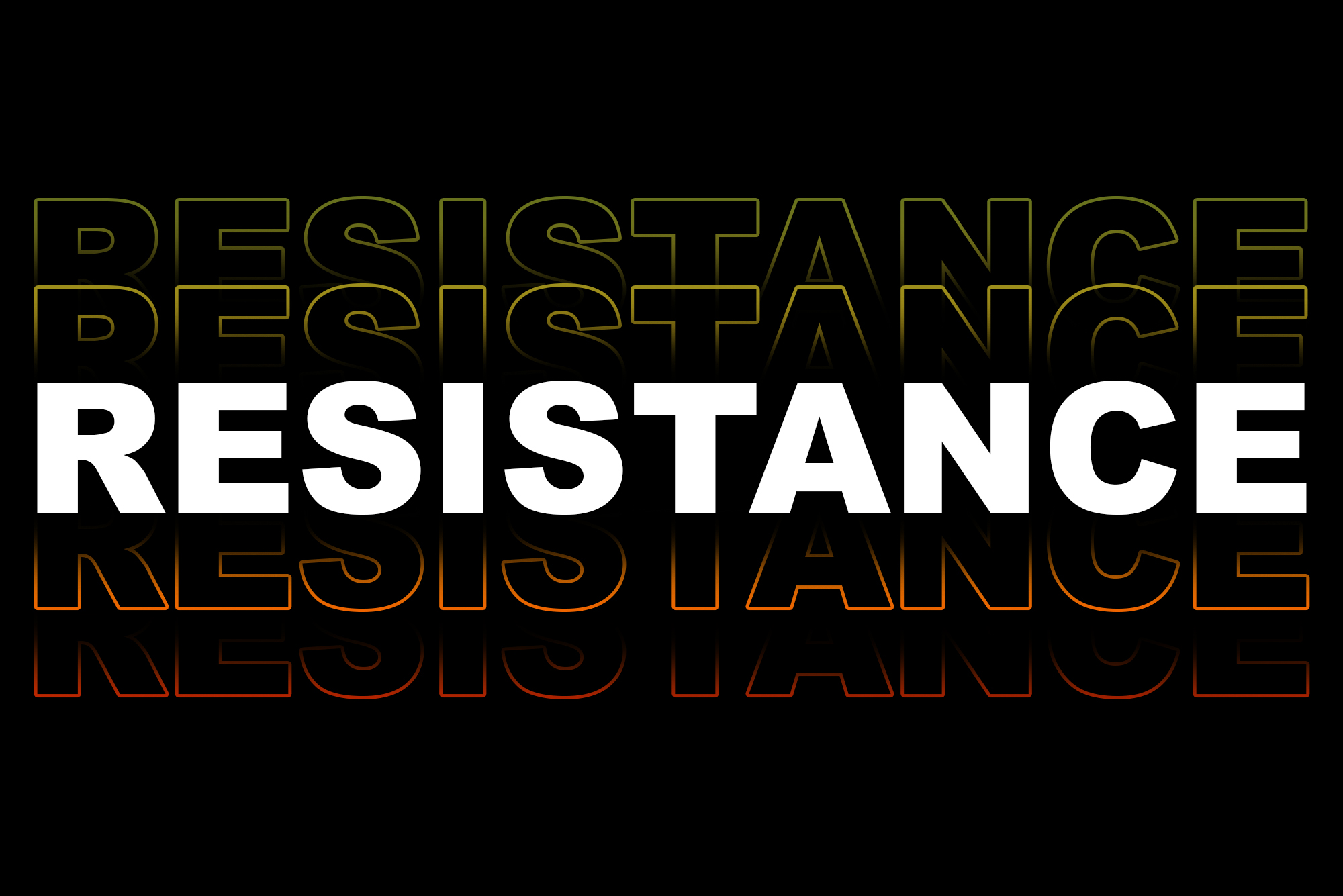

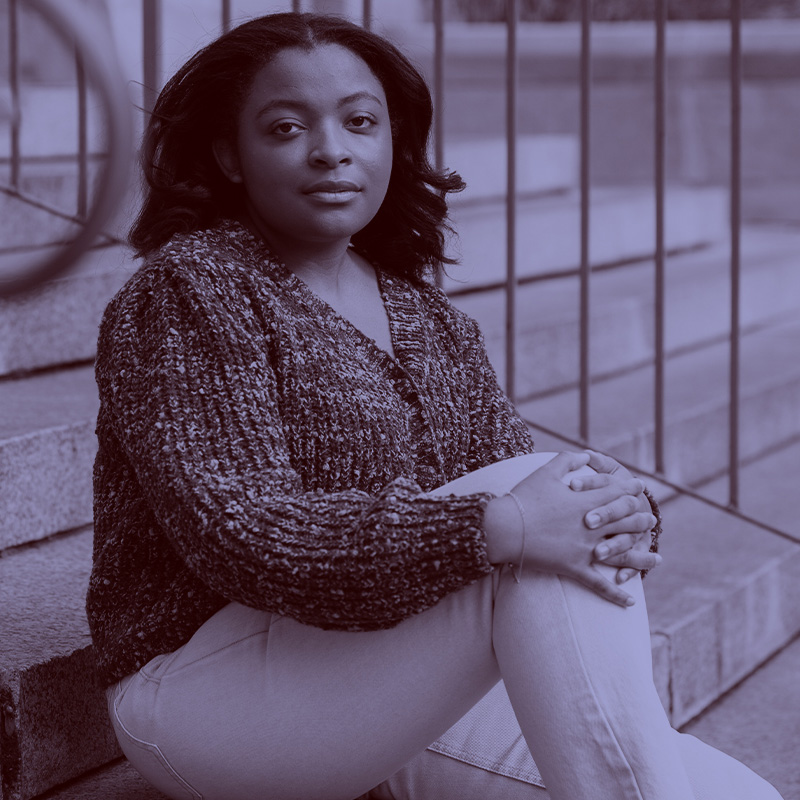
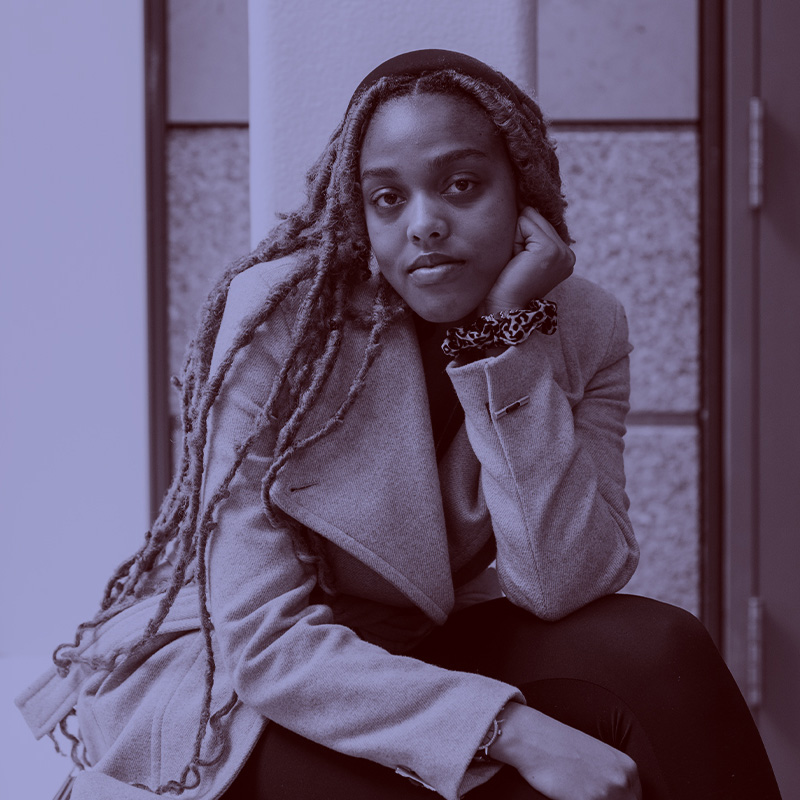
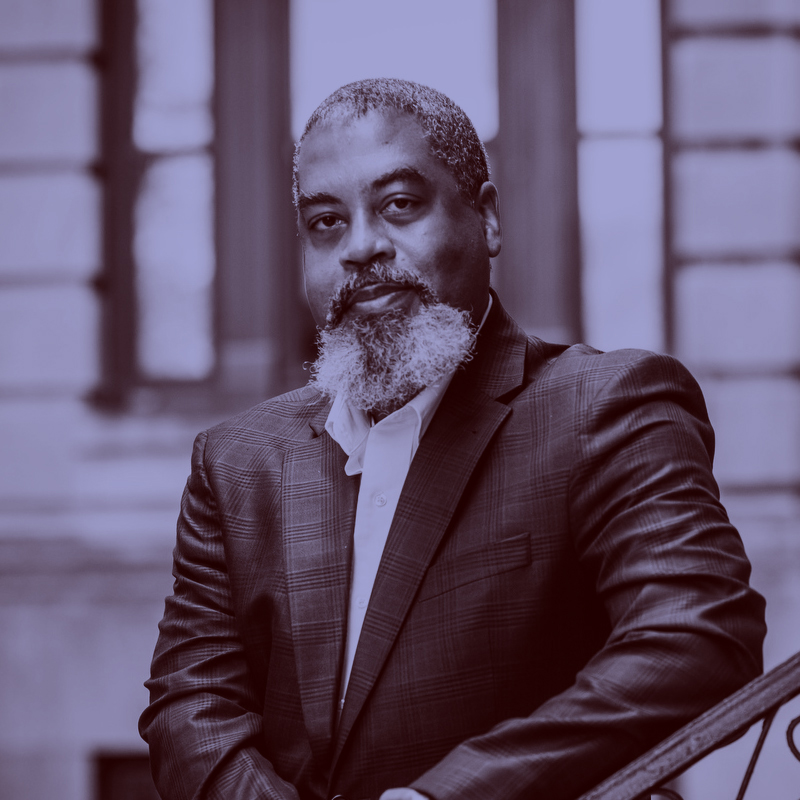
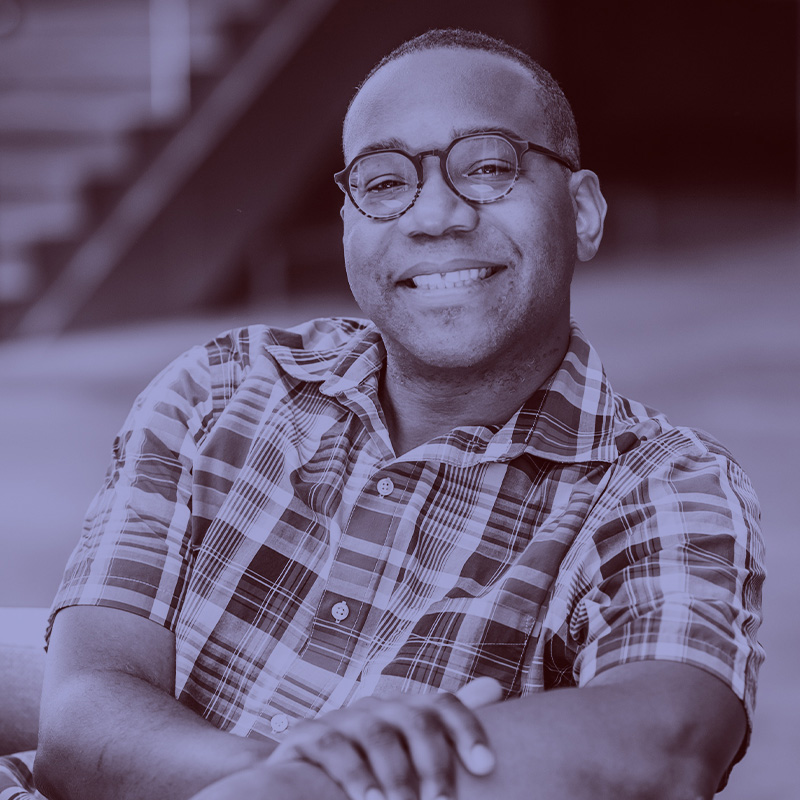

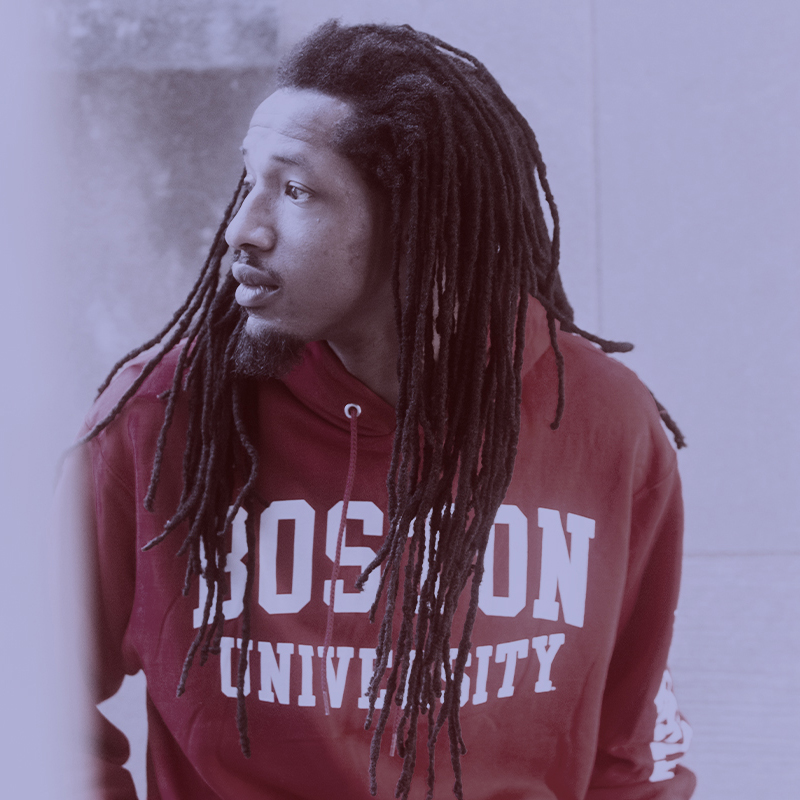
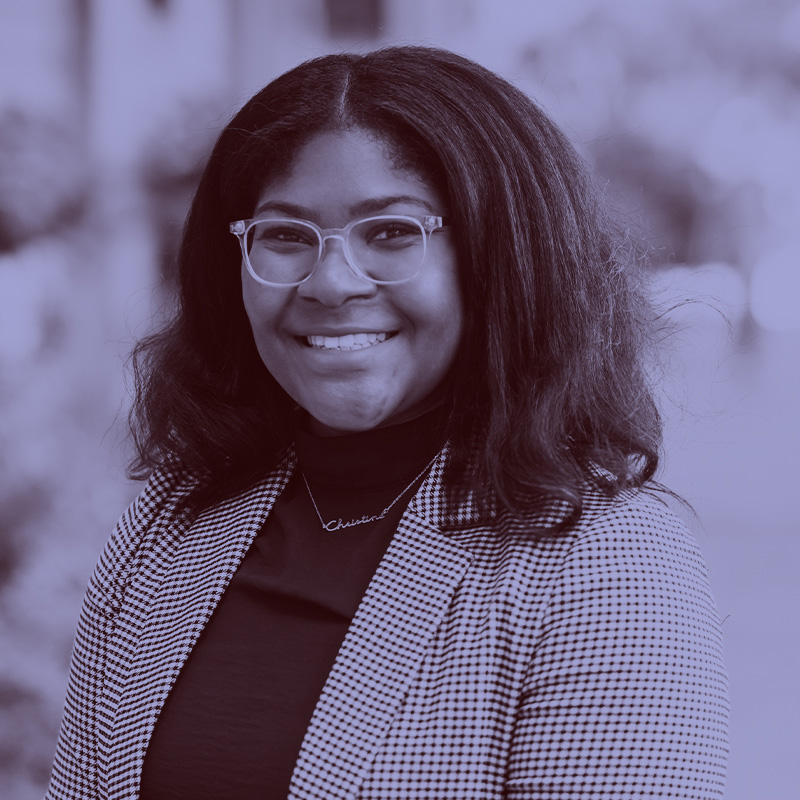
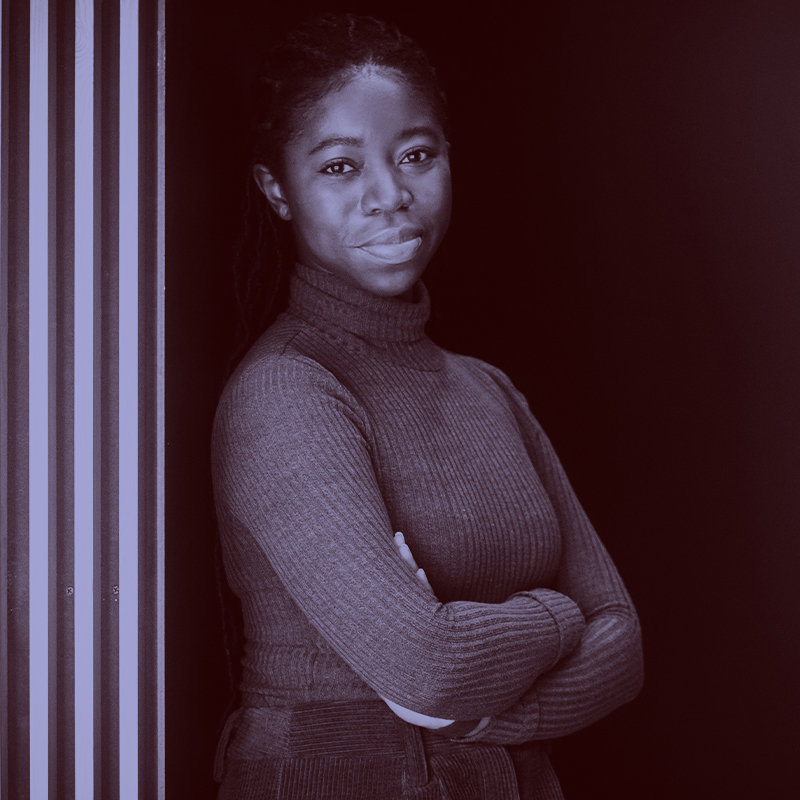
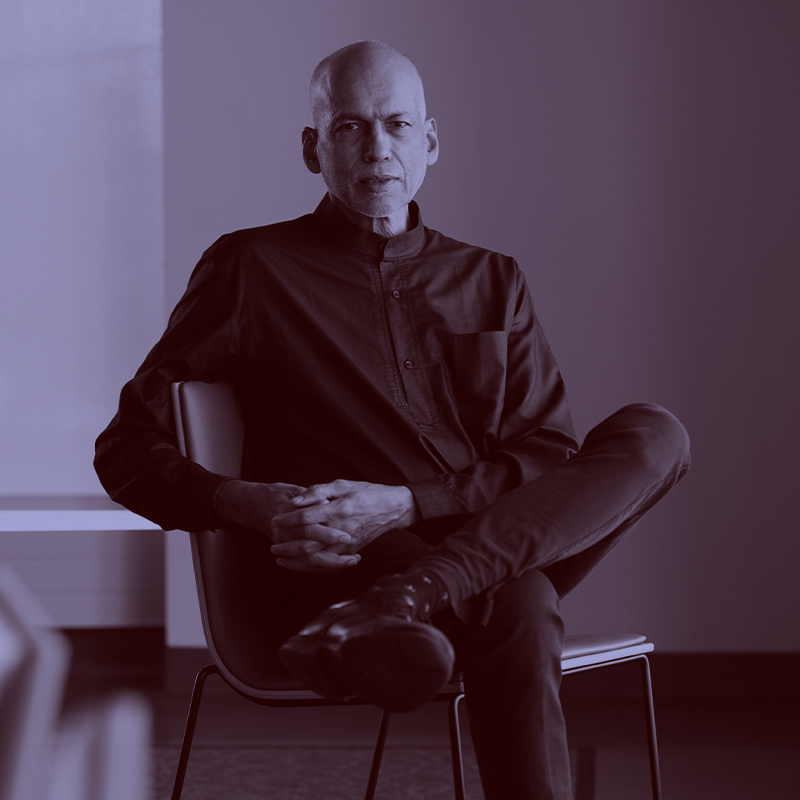




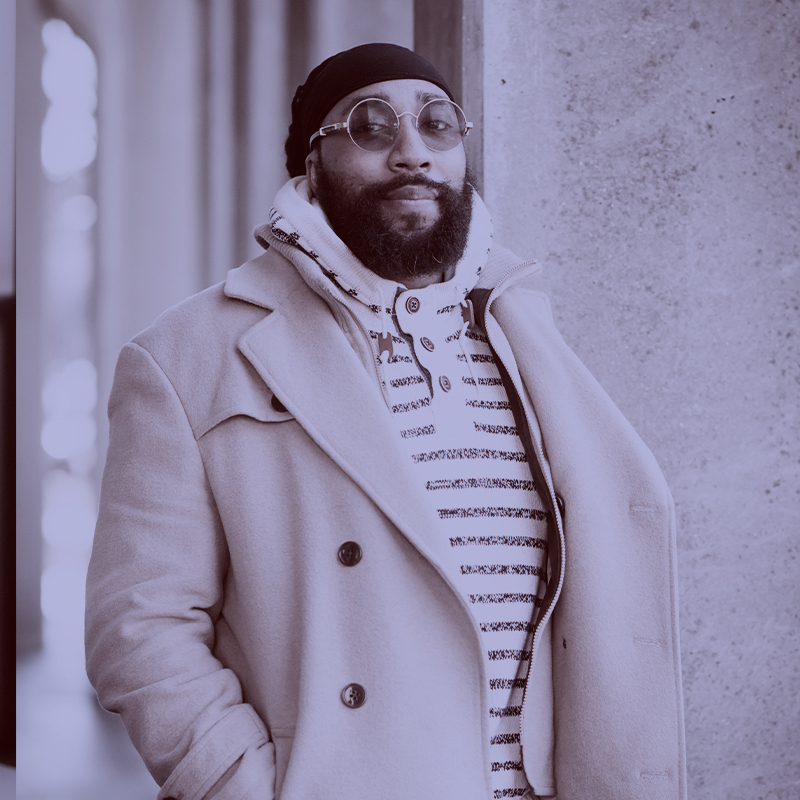


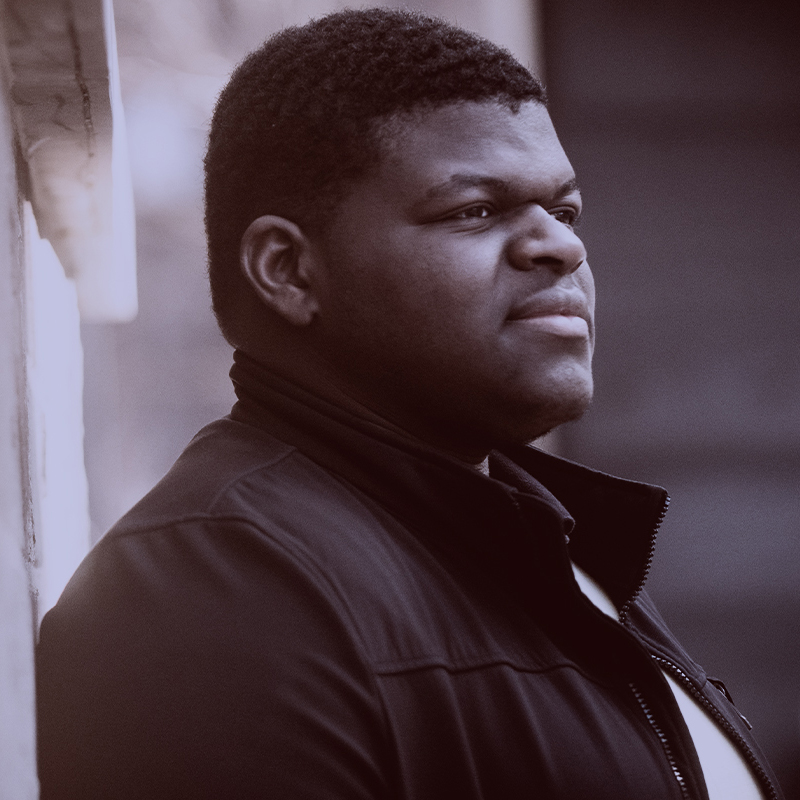
Comments & Discussion
Boston University moderates comments to facilitate an informed, substantive, civil conversation. Abusive, profane, self-promotional, misleading, incoherent or off-topic comments will be rejected. Moderators are staffed during regular business hours (EST) and can only accept comments written in English. Statistics or facts must include a citation or a link to the citation.